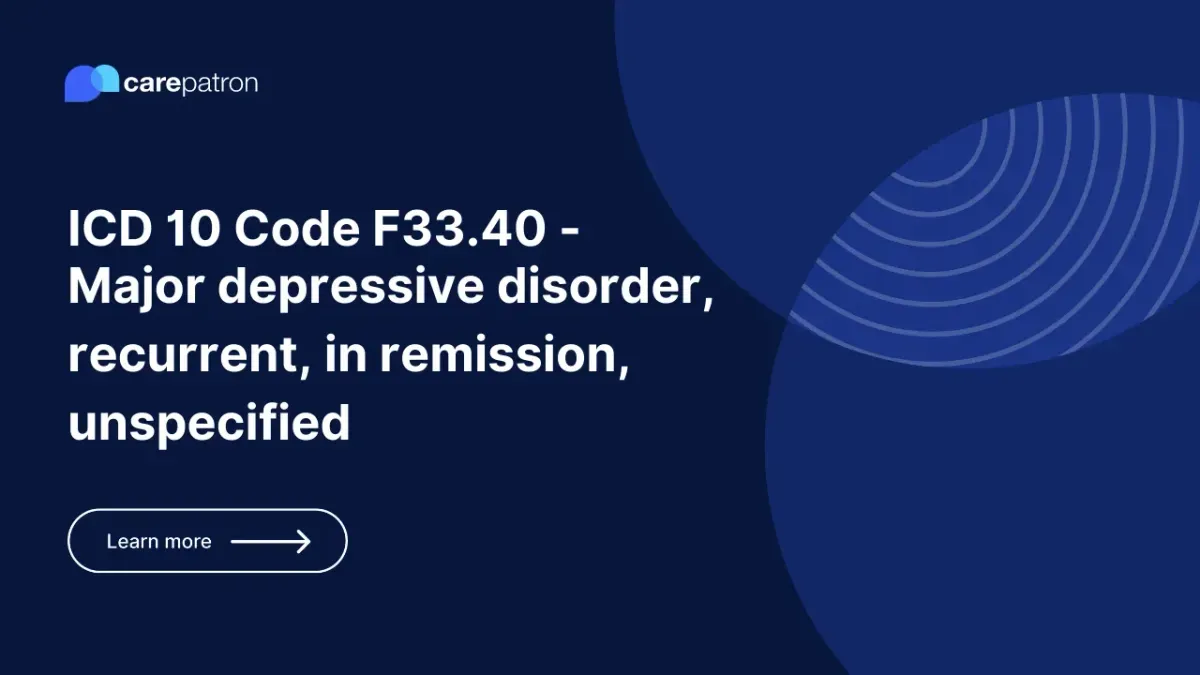
F33.40 – Major depressive disorder, recurrent, in remission, unspecified
Explore the details of ICD-10-CM code F33.40 - Major depressive disorder, recurrent, in remission, unspecified. Learn about its clinical implications and more.
Use Code
Commonly asked questions
F33.40 is the ICD-10 code for major depressive disorder, recurrent, in remission, unspecified. It indicates that the person has had previous depressive episodes but is currently in partial or full remission.
The ICD-10 code for generalized anxiety disorder is F41.1. This code applies to persistent and excessive worry that affects daily functioning.
F33 refers to major depressive disorder, recurrent, which includes multiple depressive episodes. The severity and remission status, such as partial remission or full remission, are specified with additional digits.
EHR and practice management software
Get started for free
*No credit card required
Free
$0/usd
Unlimited clients
Telehealth
1GB of storage
Client portal text
Automated billing and online payments
